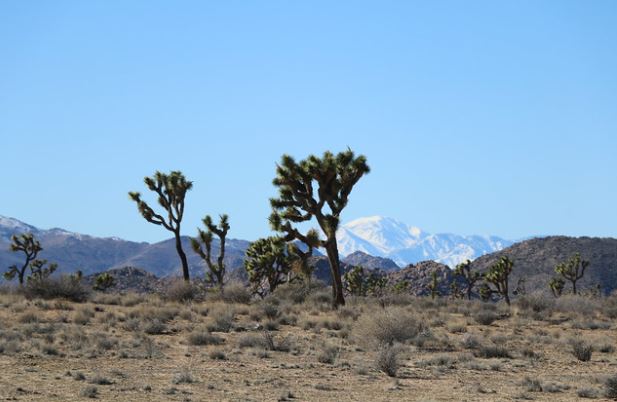Judge Rejects Effort to Strip State Endangered Species Act Safeguards
February 16, 2022 - FRESNO, Calif.— A Fresno County Superior Court judge today rejected an effort by construction and real estate interests, along with the city of Hesperia, to strip away legal protections for the imperiled western Joshua tree.
“Joshua trees and their fragile desert ecosystem just scored a huge victory,” said Brendan Cummings, the Center for Biological Diversity’s conservation director and a Joshua Tree resident. “Before state protections took effect, developers were bulldozing Joshua trees by the thousands to build roads, powerlines, strip malls and vacation rentals. If these beautiful plants are to have any hope of surviving in a warming world, we have to stop killing them.”
Today’s ruling by Judge Kristi Culver Kapetan upheld current protections for the species. A year ago the same judge rejected a similar effort to block the state’s protective rules from taking effect.
In September 2020 the California Fish and Game Commission voted unanimously to grant western Joshua trees candidate status under the California Endangered Species Act, giving them interim legal protections and triggering a status review by the Department of Fish and Wildlife.
The department’s status review will be made public in April, and the commission is scheduled to make a final decision in June about whether to permanently protect the trees or end their current protections.
The commission’s interim protection decision came in response to a 2019 petition from the Center seeking to protect the species in the face of threats from climate change, fire and development.
The growing popularity of Joshua Tree National Park had spurred a building boom in Joshua Tree and adjacent communities, resulting in the widespread removal of the namesake trees to make way for vacation rentals and second homes. A similar construction boom is occurring in Hesperia and adjacent areas where new warehouse projects and other industrial facilities are being proposed in Joshua tree woodlands. The current state protections make killing Joshua trees illegal without special permits.
In October 2020 a coalition opposed to protecting the Joshua tree, including the High Desert Association of Realtors, filed a lawsuit in Fresno County Superior Court seeking to overturn the tree’s candidate status.
Today’s ruling marks an end to that challenge and means the status review and the commission’s final protection vote will proceed as scheduled.
“It’s a sad irony that the very real estate agents marketing the iconic beauty of Joshua trees are also leading the charge to kill them,” said Cummings. “Their lawsuit was misguided, greedy and, thankfully, unsuccessful.”
The lawsuit resolved today was filed by the California Construction and Industrial Materials Association, California Business Properties Association, California Cattlemen’s Association, California Farm Bureau Federation, California Manufacturers and Technology Association, High Desert Association of Realtors and the city of Hesperia. The Center intervened in the lawsuit to defend the commission’s decision.
If the western Joshua tree wins permanent protection under the California Endangered Species Act, state and local agencies will have to manage threats to them, including developing a recovery plan outlining a strategy to protect the species in the face of climate change and other threats.
Background
While the killing of western Joshua trees by developers is the most visible threat, climate change and fire are also pushing the species towards extinction.
Recent studies show Joshua trees are dying off because of hotter, drier conditions, with very few younger trees becoming established. Even greater changes are projected over the coming decades. Scientists in 2019 projected that the Joshua tree will be largely gone from its namesake national park by the end of the century.
Prolonged droughts are projected to be more frequent and intense over the coming decades, shrinking the species’ range and leading to more tree deaths. Higher elevations, where Joshua trees might survive increasing temperatures and drying conditions, are at risk of fire because of invasive non-native grasses.
Approximately 40% of the western Joshua tree’s range in California is on private land, with only a tiny fraction protected from development. Current projections show that virtually all this habitat will be lost without stronger legal protections for the trees.
Joshua trees comprise two distinct species: the western Joshua tree (Yucca brevifolia) and the eastern Joshua tree (Y. jaegeriana). The two species occupy different areas of the desert, are genetically and morphologically distinguishable, and have different pollinating moths. Only the western species is currently a candidate under the California Endangered Species Act.
Yucca brevifolia in San Bernardino County, California
Photo by JGilkeson/USFWS, 2017
The Center for Biological Diversity is a national, nonprofit conservation organization with more than 1.7 million members and online activists dedicated to the protection of endangered species and wild places.
Source: Center for Biological Diversity









